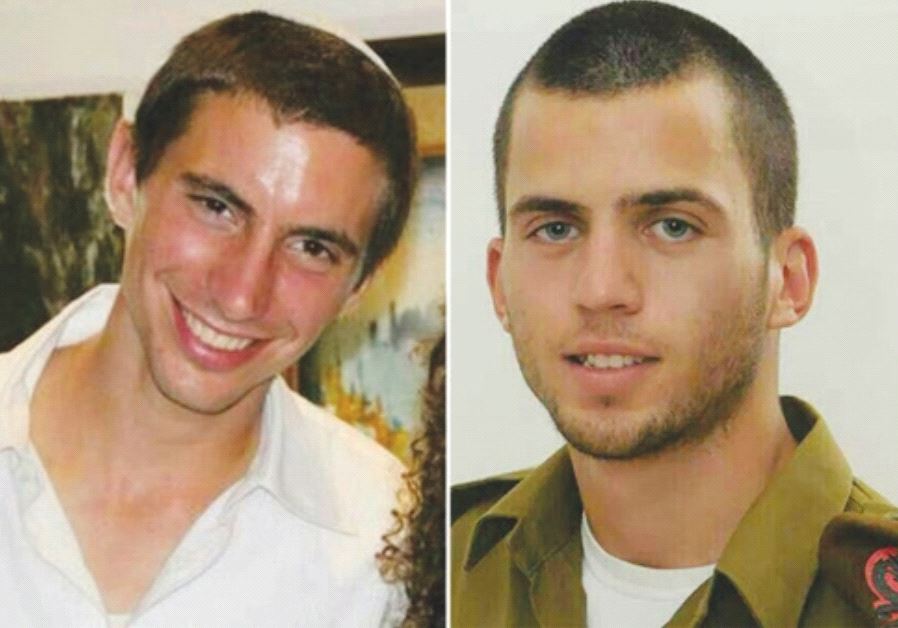Coronavirus opened a window of opportunity that can't be missed - analysis
The global pandemic has brought Israel and Hamas closer than ever to a long-awaited prisoner swap.
 Lt. Hadar Goldin (left) and St.-Sgt. Oron Shaul were killed in action in the war against Hamas in 2014
Lt. Hadar Goldin (left) and St.-Sgt. Oron Shaul were killed in action in the war against Hamas in 2014